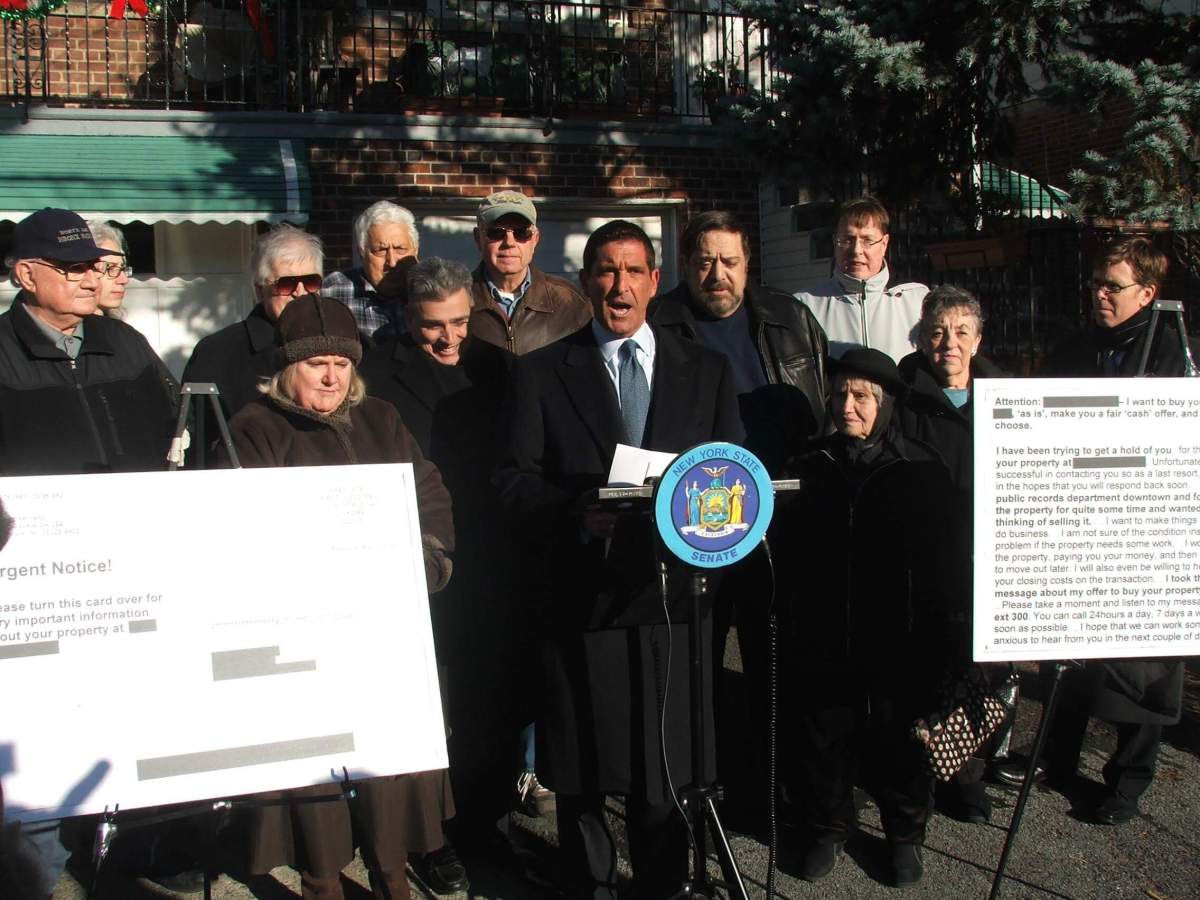In August, when a real estate non-solicitation order expired, that incorporated several east Bronx neighborhoods, residents were again deluged with mail from real estate agents eager to buy their homes. Now community groups are working together to make sure that the expired order and mortgage crisis don’t result in needless panic.
The non-solicitation order, also known as cease and desist order, has been used throughout Community Boards 9, 10, 11 and 12 by the Department of State to combat overzealous real estate soliciting. Where such an order is in effect, no one may solicit property listing from property owners whose names and addresses appear on a list updated every two years.
When non-solicitation orders for Pelham Bay, Throggs Neck, Pelham Parkway and Morris Park expired in August, real estate agents swamped residents with mailings and offers to buy. In response, residents met with Senator Jeff Klein in Throggs Neck on Friday, December 17 and asked that the Department of State reinstitute the order.
“Unfortunately, in these harsh economic times we’ve seen a rise in people using deceptive practices to lure residents struggling financially, especially seniors, with offers that sound too good to be true,” Klein said. “We need to stop these dishonest companies before anyone becomes their next victim. Renewing the non-solicitation order is a critical part of continuing to protect the pocketbooks and homes of my constituents.”
Representatives from the Pelham Bay Taxpayers Association, Country Club Civic Association, Throggs Neck Home Owners Association and Northeast Bronx Association, as well as CB10 district manager Ken Kearns and CB11 district manager John Fratta attended. So did Michael Hickey of the Center for NYC Neighborhoods.
Many senior members of the Northeast Bronx Association asked Vinny Prezioso what to do about the real estate offers, he said. Prezioso has attempted to contact the overzealous real estate agents, with poor results.
“It’s very annoying,” Prezioso said. “I don’t just get solicitations from one person either. I get them from different realty companies and the bottom line is that I have no recourse. Even if I call them and tell them to take me off their list, they send them anyway.”
Klein hopes to avoid a repeat of the 1970s and 1980s, when unscrupulous real estate agents used questionable tactics to bring down neighborhoods and snag bargain sales. Thus far, real estate agents have offered quick cash to tempt residents to sell their properties.
Reach reporter Patrick Rocchio at 718 742-3393 or procchio@cnglocal.com























